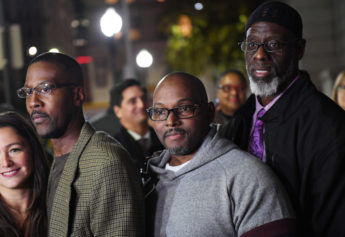When the University of Michigan law school and the Center on Wrongful Convictions at the School of Law at Northwestern University in Chicago collaborated to create the National Registry of Exonerations, the researchers found that Blacks accounted for nearly half (47 percent) of all known exonerees in 1989, and whites made up nearly 39 percent of all known exonerees. But when they got to the year 2012, they found that the number of exonerations involving Blacks had risen to 57 percent. Of the 1,525 exonerations currently listed on the register as of Jan. 7, 2o15, a total of 715 involved Black people. Because of America’s tragic racial history, even today many of the exonerations involve white people wrongfully accusing Black people of committing crimes — and the accusations being enough to send them to jail for much of their lives. These are some of the most outrageous cases of Black people being falsely accused by whites.
Amanda Knox
When Knox was accused of murdering her roommate, Meredith Kercher, in Perugia, Italy, her first response was to implicate Diya “Patrick” Lumumba, a Congolese-born resident of Italy who owned a bar in Perugia named Le Chic where Knox worked part time. Lumumba was promptly arrested. Knox told Italian police in a written statement that she saw Lumumba enter Kercher’s room on the evening of Nov. 1, 2007. She later admitted that this version of events was made up, but she implied that it was made up under duress. Lumumba spent two weeks in an Italian jail before Knox’s story fell apart.
Emmett Till
Till’s murder is one of the most famous cases of racist brutality in U.S. history. Till, 14, was killed in Mississippi in 1955 after reportedly flirting with a white woman, Carolyn Bryant, 21. Till was from Chicago, visiting his relatives in Money, Mississippi, in the Mississippi Delta region. Several nights later, Bryant’s husband, Roy, and his half-brother, J. W. Milam, went to Till’s great-uncle’s house and took Till away to a barn, where they beat him and gouged out one of his eyes before shooting him through the head and disposing of his body in the Tallahatchie River, weighting it with a 70-pound cotton gin fan tied around his neck with barbed wire. Three days later, Till’s body was discovered and retrieved from the river. When Till’s body was returned to Chicago, his mother insisted on a public funeral service with an open casket to show the world the brutality of the killing.



